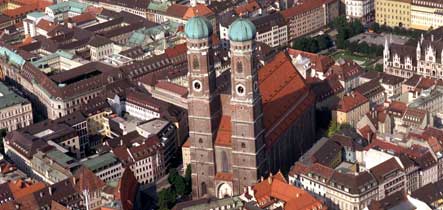The auditing firm Ernst & Young, which conducted the survey, asked 100 business professionals in Germany’s 20 largest cities about 29 characteristics, including the cost of doing business, salary levels, the quality of the work force, local administration and the image of their city.
Munich landed on top, followed by Hannover, Düsseldorf, Nuremberg and Bonn.
The Bavarian capital got high marks for its universities, regional government policies and the social climate of the city. On the negative side, those surveyed said the city suffers from a housing shortage and has a relatively high cost of living.
Pulling up the rear in the rankings were former industrial cities that have fallen on hard times, such as Bochum, Wuppertal and Duisburg.
While the capital Berlin got praise for good transport connections, when it came to schools, kindergartens and corporate structure, the German capital ranked last.



 Please whitelist us to continue reading.
Please whitelist us to continue reading.